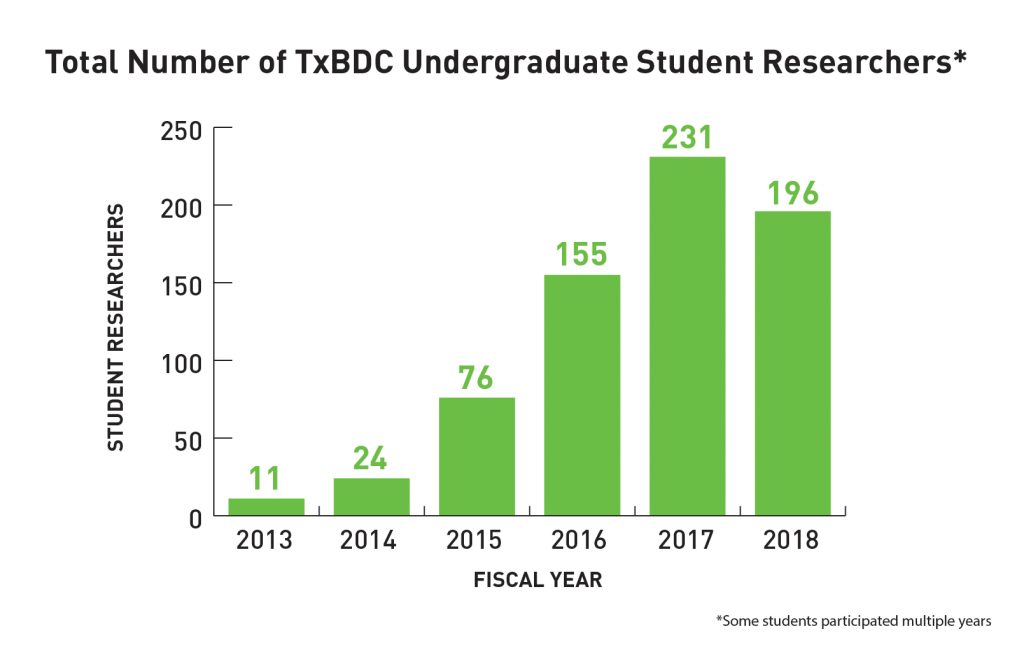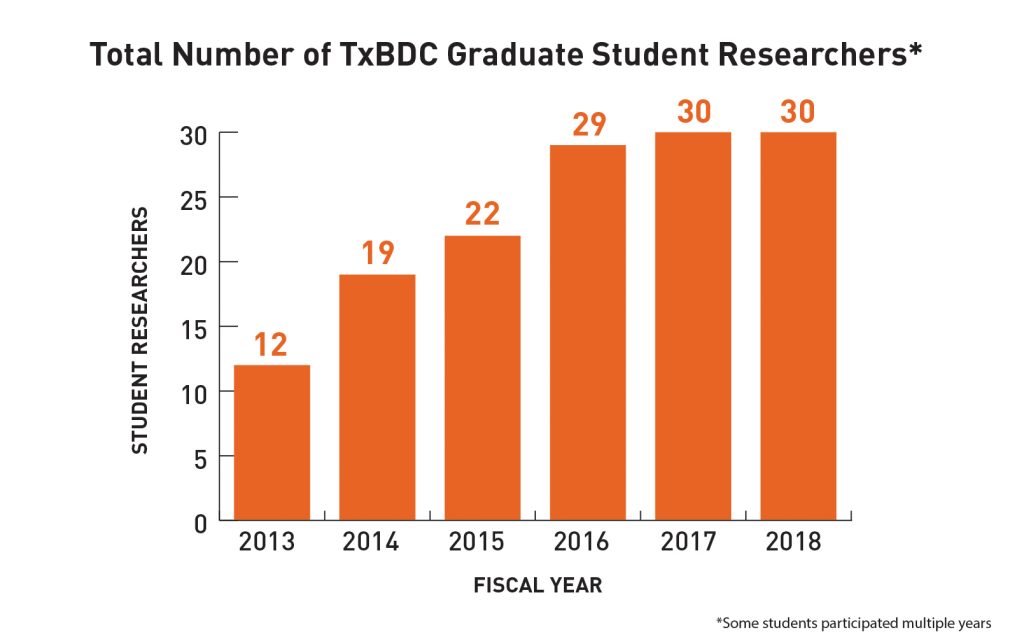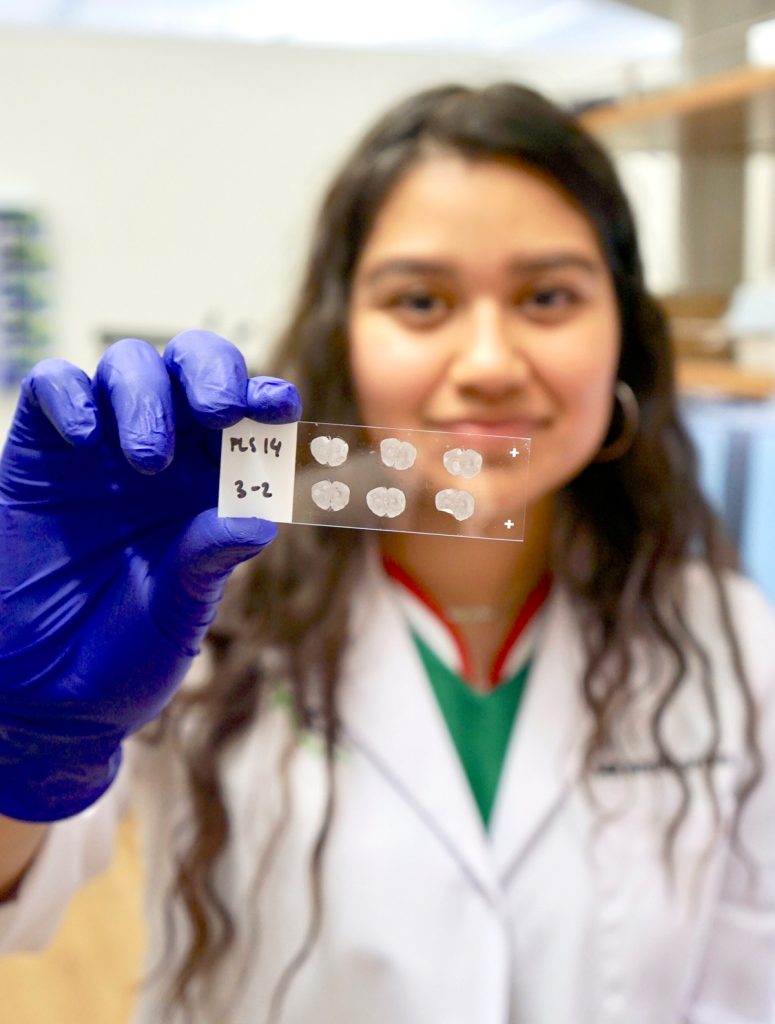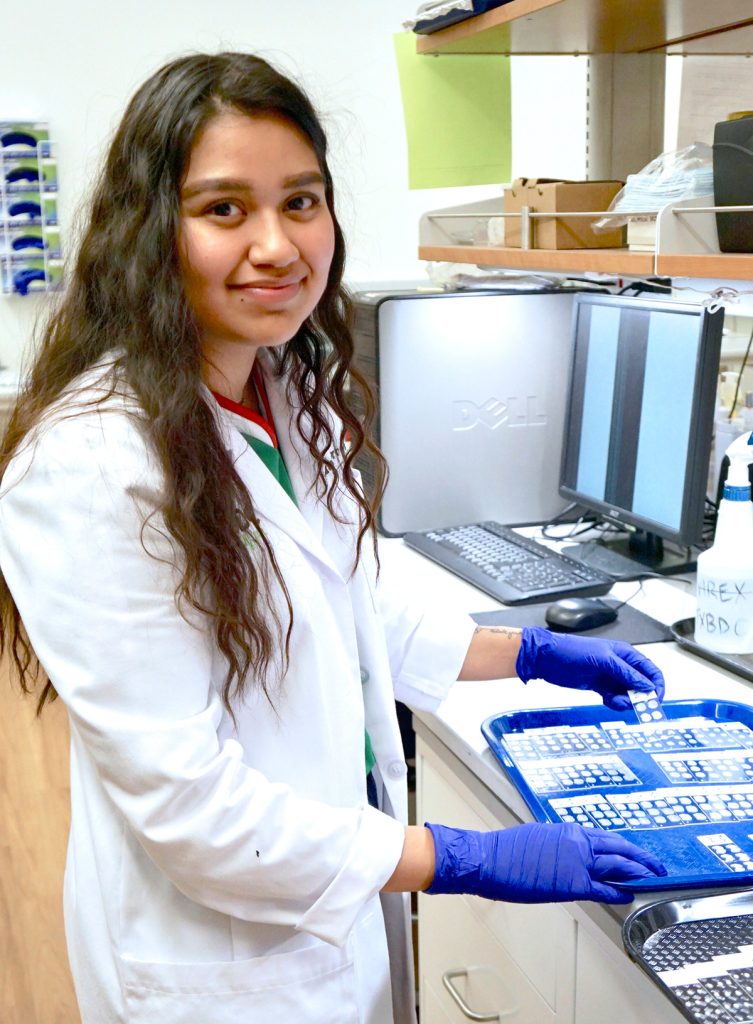Research Program Prepares Students for Life After College
May 23, 2019
Participating in the Texas Biomedical Device Center’s Undergraduate Research Program is an excellent way for UT Dallas students to strengthen their academic experience and prepare for post-graduate life. Everyone who participates in the lab contributes to the discovery of new scientific findings and the development of advanced medical technologies. Our program sets students on a path to success by exposing them to cutting‐edge, real-world laboratory research. Students collaborate with science and/or engineering research teams, participate in laboratory-based research activities and help to develop and deploy real-world medical devices and applications. Approximately 580 graduate and undergraduate researchers have been trained in the TxBDC labs since the center’s creation in 2012. The center’s mission to “Engineering solutions to improve human health” is accomplished by our world-class students and researchers at UT Dallas.
Lab experience can be extremely valuable to students pursuing higher degrees after they leave UTD. This turned out to be true for student volunteer Miranda Torres. Miranda started as a volunteer researcher for Dr. Seth Hays in the spring of 2018. One short year later she is off to attend Baylor College of Medicine. Here is what Miranda had to say about her experience at the Texas Biomedical Device Center.


Q&A with Miranda Torres

How did you hear about our Research Program?
During my freshman year I took a freshman seminar class, and during that class they had labs come in and present their work. Daniel Hulsey, who was still a graduate student, presented about the TxBDC lab. He said they were accepting applications so I applied and started the next semester.
Why were you interested in participating in our lab?
Initially I was looking at a lot of labs. I didn’t know much about neuroscience, but Dr. Kilgard’s name came up quite a bit. I looked up “neuroplasticity” and I was also taking Intro to Neuroscience, and I thought “This stuff is really cool”. I saw that this lab was producing results, and I decided I wanted to see what was happening here.
What types of tasks did you perform in the lab?
I worked on the motor team with Michael Darrow and Andrea Ruiz. For Michael I worked on the Spinal Cord Injury projects with included animal health care and assessments. For Andrea I mostly did histology.
Which tasks did you enjoy the most when working in our lab?
Histology. I stared with behavior my first semester and decided I wanted to get more involved, so I learned how to slice. When I saw the slides under the microscope I could see the brain structures. I thought “This is so cool”. I could see that there were more neurons and that the brain was actually changing. It got me so excited and I think it’s what pushed me the most to peruse my PhD.
What will you be doing next?
I was accepted to Baylor College of Medicine Post-Baccalaureate Research Education Program, which only accepts 7 students per year. For the next 12 months I will take classes while working in a neuroscience lab there and apply for a neuroscience PhD program next year.
How did the TxBDC Research Program help you get where you are today?
I have really been able to grow here. I obviously got a lot of experience in the lab but I also was able to do projects and participate in a poster competition. When I started I was entering data and now I am a student worker. I am in charge of projects, I inject and suture. I was also able to obtain recommendation letters from Dr. Hays and Dr. Kilgard which was very helpful.
Do you have any advice for future volunteers?
Go for it! It is not just a neuro lab. It is so collaborative that you don’t have to be a neuroscience major to be here. Also, if you find something interesting and want to do more, do more. I have learned that you can’t just wait around for someone to give you a job, you have to ask for it.

